127 results found for 'Force'. |1|2|3|4|5|6 | Next | View 100 per page
Low relevance matches: 61 other results may be of interest to you. Show low relevance matches
Forces and Moving - The way objects move depends on a variety of factors including their size and shape ACSSU033 Year 2 Physical Sciences
Forces and Moving - A push or a pull affects how an object moves or changes shape ACSSU076 Year 4 Physical Sciences
Forces and Moving - Forces can be exerted by one object on another through direct contact or from a distance ACSSU117 Year 7 Physical Sciences
Forces and Machines - Change to an object’s motion is caused by unbalanced forces, including Earth’s gravitational attraction, acting on the object ACSSU229 Year 10 Physical Sciences
Forces and Motion - The motion of objects can be described and predicted using the laws of physics ACSCH018 Year 11 Chemical fundamentals
Properties and structure of atoms - Atoms can be modelled as a nucleus surrounded by electrons in distinct energy levels, held together by electrostatic forces of attraction between the nucleus and electrons; atoms can be represented using electron shell diagrams (all electron shells or val ACSCH032 Year 11 Chemical fundamentals
Properties and structure of materials - The characteristic properties of metals (for example, malleability, thermal conductivity, electrical conductivity) are explained by modelling metallic bonding as a regular arrangement of positive ions (cations) made stable by electrostatic forces of attra ACSCH056 Year 11 Molecular interactions and reactions
Intermolecular forces and gases - The shapes of molecules can be explained and predicted using three dimensional representations of electrons as charge clouds and using valence shell electron pair repulsion (VSEPR) theory ACSCH059 Year 11 Molecular interactions and reactions
Intermolecular forces and gases - Data from chromatography techniques (for example, thin layer, gas and highperformance liquid chromatography) can be used to determine the composition and purity of substances; the separation of the components is caused by the variation of strength of the ACSCH060 Year 11 Molecular interactions and reactions
Intermolecular forces and gases - The behaviour of gases, including the qualitative relationships between pressure, temperature and volume, can be explained using kinetic theory ACSCH065 Year 11 Molecular interactions and reactions
Aqueous solutions and acidity - The solubility of substances in water, including ionic and molecular substances, can be explained by the intermolecular forces between species in the substances and water molecules, and is affected by changes in temperature ACSPH060 Year 11 Linear Motion and Waves
Linear motion and force - Uniformly accelerated motion is described in terms of relationships between measurable scalar and vector quantities, including displacement, speed, velocity and acceleration ACSPH061 Year 11 Linear Motion and Waves
Linear motion and force - Representations, including graphs and vectors, and/or equations of motion, can be used qualitatively and quantitatively to describe and predict linear motion ACSPH062 Year 11 Linear Motion and Waves
Linear motion and force - Vertical motion is analysed by assuming the acceleration due to gravity is constant near Earth’s surface ACSPH063 Year 11 Linear Motion and Waves
Linear motion and force - Newton’s Three Laws of Motion describe the relationship between the force or forces acting on an object, modelled as a point mass, and the motion of the object due to the application of the force or forces ACSPH064 Year 11 Linear Motion and Waves
Linear motion and force - Momentum is a property of moving objects; it is conserved in a closed system and may be transferred from one object to another when a force acts over a time interval ACSPH065 Year 11 Linear Motion and Waves
Linear motion and force - Energy is conserved in isolated systems and is transferred from one object to another when a force is applied over a distance; this causes work to be done and changes to kinetic and/or potential energy of objects ACSPH066 Year 11 Linear Motion and Waves
Linear motion and force - Collisions may be elastic and inelastic; kinetic energy is conserved in elastic collisions ACSPH102 Year 12 Gravity and electromagnetism
Electromagnetism - Electrostatically charged objects exert a force upon one another; the magnitude of this force can be calculated using Coulomb’s Law ACSPH108 Year 12 Gravity and electromagnetism
Electromagnetism - Magnets, magnetic materials, moving charges and currentcarrying wires experience a force in a magnetic field; this force is utilised in DC electric motors ACSPH100 Year 12 Gravity and electromagnetism
Gravity and motion - When an object experiences a net force of constant magnitude perpendicular to its velocity, it will undergo uniform circular motion, including circular motion on a horizontal plane and around a banked track ACSCH031 Year 11 Chemical fundamentals
Properties and structure of materials - The properties of ionic compounds (for example, high melting point, brittleness, ability to conduct electricity when liquid or in solution) are explained by modelling ionic bonding as ions arranged in a crystalline lattice structure with forces of attract ACSPH098 Year 12 Gravity and electromagnetism
Gravity and motion - The vector nature of the gravitational force can be used to analyse motion on inclined planes by considering the components of the gravitational force (that is, weight) parallel and perpendicular to the plane ACSPH103 Year 12 Gravity and electromagnetism
Electromagnetism - A positively charged body placed in an electric field will experience a force in the direction of the field; the strength of the electric field is defined as the force per unit charge ACSPH104 Year 12 Gravity and electromagnetism
Electromagnetism - Point charges and charged objects produce an electric field in the space that surrounds them; field theory attributes the electrostatic force on a point charge or charged body to the presence of an electric field ACSPH105 Year 12 Gravity and electromagnetism
Electromagnetism - When a charged body moves or is moved from one point to another in an electric field and its potential energy changes, work is done on or by the field
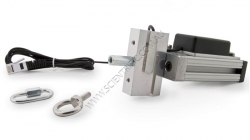


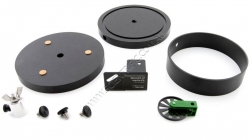
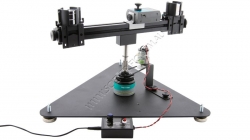
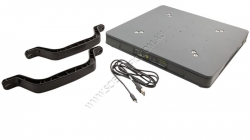
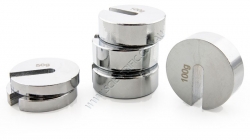


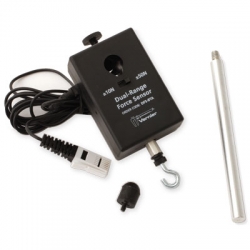
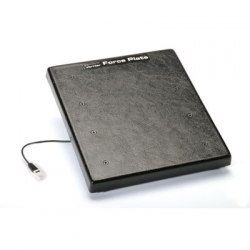
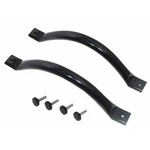
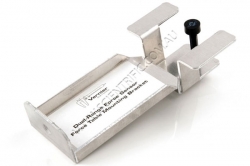


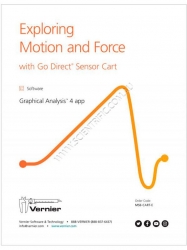

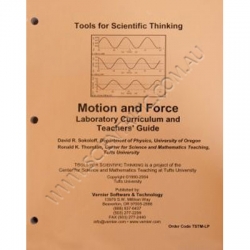


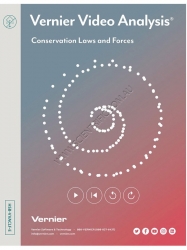
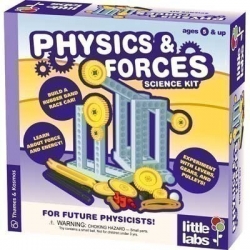

127 results found for 'Force'. |1|2|3|4|5|6 | Next | View 100 per page
Low relevance matches: 61 other results may be of interest to you. Show low relevance matches
Curriculum resources related to 'Force'
ACSSU005 Foundation Physical SciencesForces and Moving - The way objects move depends on a variety of factors including their size and shape ACSSU033 Year 2 Physical Sciences
Forces and Moving - A push or a pull affects how an object moves or changes shape ACSSU076 Year 4 Physical Sciences
Forces and Moving - Forces can be exerted by one object on another through direct contact or from a distance ACSSU117 Year 7 Physical Sciences
Forces and Machines - Change to an object’s motion is caused by unbalanced forces, including Earth’s gravitational attraction, acting on the object ACSSU229 Year 10 Physical Sciences
Forces and Motion - The motion of objects can be described and predicted using the laws of physics ACSCH018 Year 11 Chemical fundamentals
Properties and structure of atoms - Atoms can be modelled as a nucleus surrounded by electrons in distinct energy levels, held together by electrostatic forces of attraction between the nucleus and electrons; atoms can be represented using electron shell diagrams (all electron shells or val ACSCH032 Year 11 Chemical fundamentals
Properties and structure of materials - The characteristic properties of metals (for example, malleability, thermal conductivity, electrical conductivity) are explained by modelling metallic bonding as a regular arrangement of positive ions (cations) made stable by electrostatic forces of attra ACSCH056 Year 11 Molecular interactions and reactions
Intermolecular forces and gases - The shapes of molecules can be explained and predicted using three dimensional representations of electrons as charge clouds and using valence shell electron pair repulsion (VSEPR) theory ACSCH059 Year 11 Molecular interactions and reactions
Intermolecular forces and gases - Data from chromatography techniques (for example, thin layer, gas and highperformance liquid chromatography) can be used to determine the composition and purity of substances; the separation of the components is caused by the variation of strength of the ACSCH060 Year 11 Molecular interactions and reactions
Intermolecular forces and gases - The behaviour of gases, including the qualitative relationships between pressure, temperature and volume, can be explained using kinetic theory ACSCH065 Year 11 Molecular interactions and reactions
Aqueous solutions and acidity - The solubility of substances in water, including ionic and molecular substances, can be explained by the intermolecular forces between species in the substances and water molecules, and is affected by changes in temperature ACSPH060 Year 11 Linear Motion and Waves
Linear motion and force - Uniformly accelerated motion is described in terms of relationships between measurable scalar and vector quantities, including displacement, speed, velocity and acceleration ACSPH061 Year 11 Linear Motion and Waves
Linear motion and force - Representations, including graphs and vectors, and/or equations of motion, can be used qualitatively and quantitatively to describe and predict linear motion ACSPH062 Year 11 Linear Motion and Waves
Linear motion and force - Vertical motion is analysed by assuming the acceleration due to gravity is constant near Earth’s surface ACSPH063 Year 11 Linear Motion and Waves
Linear motion and force - Newton’s Three Laws of Motion describe the relationship between the force or forces acting on an object, modelled as a point mass, and the motion of the object due to the application of the force or forces ACSPH064 Year 11 Linear Motion and Waves
Linear motion and force - Momentum is a property of moving objects; it is conserved in a closed system and may be transferred from one object to another when a force acts over a time interval ACSPH065 Year 11 Linear Motion and Waves
Linear motion and force - Energy is conserved in isolated systems and is transferred from one object to another when a force is applied over a distance; this causes work to be done and changes to kinetic and/or potential energy of objects ACSPH066 Year 11 Linear Motion and Waves
Linear motion and force - Collisions may be elastic and inelastic; kinetic energy is conserved in elastic collisions ACSPH102 Year 12 Gravity and electromagnetism
Electromagnetism - Electrostatically charged objects exert a force upon one another; the magnitude of this force can be calculated using Coulomb’s Law ACSPH108 Year 12 Gravity and electromagnetism
Electromagnetism - Magnets, magnetic materials, moving charges and currentcarrying wires experience a force in a magnetic field; this force is utilised in DC electric motors ACSPH100 Year 12 Gravity and electromagnetism
Gravity and motion - When an object experiences a net force of constant magnitude perpendicular to its velocity, it will undergo uniform circular motion, including circular motion on a horizontal plane and around a banked track ACSCH031 Year 11 Chemical fundamentals
Properties and structure of materials - The properties of ionic compounds (for example, high melting point, brittleness, ability to conduct electricity when liquid or in solution) are explained by modelling ionic bonding as ions arranged in a crystalline lattice structure with forces of attract ACSPH098 Year 12 Gravity and electromagnetism
Gravity and motion - The vector nature of the gravitational force can be used to analyse motion on inclined planes by considering the components of the gravitational force (that is, weight) parallel and perpendicular to the plane ACSPH103 Year 12 Gravity and electromagnetism
Electromagnetism - A positively charged body placed in an electric field will experience a force in the direction of the field; the strength of the electric field is defined as the force per unit charge ACSPH104 Year 12 Gravity and electromagnetism
Electromagnetism - Point charges and charged objects produce an electric field in the space that surrounds them; field theory attributes the electrostatic force on a point charge or charged body to the presence of an electric field ACSPH105 Year 12 Gravity and electromagnetism
Electromagnetism - When a charged body moves or is moved from one point to another in an electric field and its potential energy changes, work is done on or by the field
Products related to 'Force'

Vernier VSMT Force Cell
VERNIER VSMT REPLACEMENT FORCE CELL
This is a replacement force cell for the original VSMT Vernier Structures and Materials Tester not the GDX-VSMT.
If the force sensor needs to be repaired or replaced Vernier's website describes how it can be removed from the V...
Order code: VSMT-FORCE

Vernier Go Direct Centripetal Force Apparatus
VERNIER GO DIRECT CENTRIPETAL FORCE APPARATUS
The Vernier Go Direct Centripetal Force Apparatus and Vernier Go Direct Force and Acceleration Sensor (not included) make an ideal combination to explore rotational dynamics.
When students use the Vernier Go Direct Centripe...
Order code: GDX-CFA



Vernier Go Direct Force and Acceleration Sensor
VERNIER GO DIRECT FORCE AND ACCELERATION SENSOR
Vernier's Go Direct Force and Acceleration Sensor couples a 3-axis accelerometer with a stable and accurate force sensor that measures forces as small as ±0.1N and up to ±50N. Measure pushes and pulls in the classroom or out...
Order code: GDX-FOR



Vernier Centripetal Force Apparatus Moment of Inertia Kit
VERNIER CENTRIPETAL FORCE APPARATUS MOMENT OF INERTIA KIT
With the Vernier Centripetal Force Apparatus Moment of Inertia Accessory Kit, students can explore inertia in a broader context. The kit expands the capabilities of a Vernier Centripetal Force Apparatus when invest...
Order code: CFA-MIK

Vernier Go Direct Centripetal Force System
VERNIER GO DIRECT CENTRIPETAL FORCE SYSTEM
Vernier's Go Direct Centripetal Force Apparatus and Go Direct Force and Acceleration Sensor make an ideal combination to explore rotational dynamics.
Students can conduct a variety of rotational dynamics investigations with a si...
Order code: GDX-CFAF

Vernier Go Direct Force Plate
VERNIER GO DIRECT FORCE PLATE
Designed for much greater forces than the Dual-Range Force or Go Direct Force and Acceleration sensors, the Vernier Go Direct Force Plate can measure the forces developed during stepping, jumping and other human-scale actions.
For example...
Order code: GDX-FP

Vernier Centripetal Force Apparatus Replacement Masses
VERNIER REPLACEMENT MASSES FOR CENTRIPETAL FORCE APPARATUS
A set of four 100g and four 50g masses for use with the Vernier Centripetal Force Apparatus.
Order code: M-CFA

Vernier Centripetal Force Apparatus Replacement Swivel Assembly
VERNIER CENTRIPETAL FORCE APPARATUS REPLACEMENT SWIVEL ASSEMBLY
A replacement Swivel Assembly that connects the sliding carriage of the Vernier Centripetal Force Apparatus to a Vernier Dual-Range Force Sensor (DFS-BTA).
Order code: SA-CFA

Vernier Exploring Motion and Force with Go Direct Sensor Cart Package
VERNIER GO DIRECT EXPLORING MOTION AND FORCE WITH SENSOR CARTS PACKAGE
Explore the force of friction, aspects of motion and simple machines such as the lever, ramp and pulley, all using Vernier's Go Direct Sensor Cart and materials typically found in your Years 6-9 Middle...
Order code: GDP-MS-SC

Vernier Dual-Range Force Sensor
VERNIER DUAL RANGE FORCE SENSOR
The Vernier Dual-Range Force Sensor is a general purpose sensor for measuring pushing and pulling forces. Study friction, simple harmonic motion, impact in collisions or centripetal force.
Two ranges allow the measurement of forces as sma...
Order code: DFS-BTA



Vernier Force Plate
VERNIER FORCE PLATE
About the size of a bathroom scale, the Vernier Force Plate has been designed for much higher forces than their DFS-BTA Dual-Range Force Sensor. The Force Plate can measure the forces developed during stepping, jumping and other human-scale actions.
...
Order code: FP-BTA



Vernier Force Plate Handles
VERNIER FORCE PLATE HANDLES
These are an additional set of handles designed to attach to the VP-BTA Vernier Force Plate.
Order code: FP-HAN

Vernier Force Table Adapter
VERNIER FORCE TABLE ADAPTOR
The Vernier Force Table Adapter extends the versatility of your Vernier Dual-Range Force Sensor and Vernier Go Direct Force and Acceleration Sensor by increasing the mounting possibilities. It is specifically designed to attach to a round force...
Order code: FTA-DFS

Vernier Centripetal Force Apparatus Replacement Sliding Carriage
VERNIER CENTRIPETAL FORCE APPARATUS REPLACEMENT SLIDING CARRIAGE
A replacement sliding carriage for the Vernier Centripetal Force Apparatus.
Order code: SC-CFA

Vernier Investigating Force (Elementary ebook)
VERNIER INVESTIGATING FORCE EBOOK
Investigate everyday push/pull forces such as the frictional force on a shoe with your Year 3-6 students using this electronic book of experiments and a GDX-FOR Vernier Go Direct Force ...
Order code: ELB-FOR-E

Vernier Exploring Motion and Force with GDX-CART - Electronic Version
VERNIER EXPLORING MOTION AND FORCE WITH GO DIRECT SENSOR CART
This electronic Vernier Lab Manual download includes seven motion and force experiments for Years 6-9 Middle School science that can be done with the Vernier Go Direct Sensor Cart. Collect, share and analyze se...
Order code: MSB-CART-E

Vernier Centripetal Force Apparatus Replacement Fixed Carriage
VERNIER CENTRIPETAL FORCE APPARATUS REPLACEMENT FIXED CARRIAGE
A replacement fixed carriage for the Vernier Centripetal Force Apparatus.
Order code: FC-CFA

Vernier Tools for Scientific Thinking - Motion and Force using Logger Pro
Last hardcopy available.
TOOLS FOR SCIENTRIFIC THINKING - MOTION and FORCE using Logger Pro
Laboratory Curriculum and Teachers Guide
The Tools for Scientific Thinking curricula make use of microcomputer-based laboratory materials for student development of concepts and intuition in the laborat...
Order code: TSTM-LP

Vernier Centripetal Force Apparatus
No longer available.
VERNIER CENTRIPETAL FORCE APPARATUS Vernier's Centripetal Force Apparatus allows you to investigate the relationship between centripetal force, angular velocity, mass and radius. A force sensor measures the centripetal force exerted on a mass as it moves in a circle. A...
VERNIER CENTRIPETAL FORCE APPARATUS Vernier's Centripetal Force Apparatus allows you to investigate the relationship between centripetal force, angular velocity, mass and radius. A force sensor measures the centripetal force exerted on a mass as it moves in a circle. A...

Vernier Dual Range Force Sensor Replacement Parts Kit
VERNIER DUAL RANGE FORCE SENSOR REPLACEMENT PARTS KIT
The Dual-Range Force Sensor Replacement Parts Kit includes all of the small components for 10 Dual-Range Force Sensors.
Included:
• 10 thumb screws
• 10 rubber bumpers
• 10 hooks
• 10 nylon nuts...
Order code: DFS-RPK

Vernier Video Analysis: Conservation Laws and Forces E-Book
VERNIER VIDEO ANALYSIS: CONSERVATION LAWS AND FORCES E-BOOK
Vernier Video Analysis: Conservation Laws and Forces e-book features 12 investigations using the Vernier Video Analysis® app to explore mechanics topics beyond basic motion, such as conservation of energy and con...
Order code: HSB-VVACLF-E

Little Labs: Physics and Forces
A great little kit in the Little Labs line from Thames and Kosmos. Learn about mechanics and physics by building simple machines such as levers, gears and pulleys. Discover force and motion. 20 page colour guidebook.
For ages 5 and up.
Order code: 602123


Key Experiment Crumple Zone Collisions
KEPS24: This experiment analyses the motion of a cart down a ramp and the forces of impact under different conditions.
Curriculum Topics
Physics: Linear motion and force
Physics: Force and momentum in collisions
Physics: Gravity and motion
Principle
...
Order code: KEPS24



KidWind GENPack Generator Kit
KIDWIND GENPACK
The GENPack allows students to construct their own electrical generator and perform experiments with electricity and magnetism.
Changing variables in the generator design will impact current and voltage output. The GENPack is perfect for physics and elec...
Order code: KW-GP


127 results found for 'Force'. |1|2|3|4|5|6 | Next | View 100 per page


